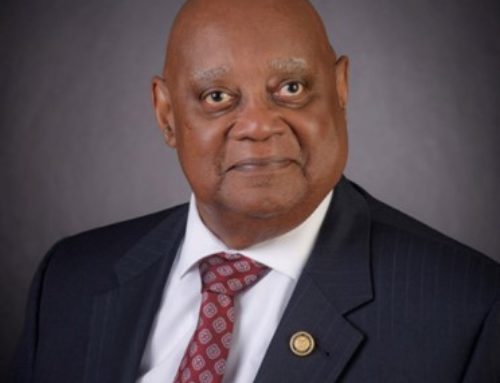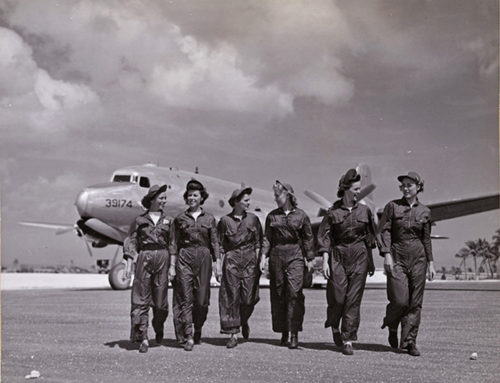One of the best things about working at the Submarine Museum is the stories people tell. Every day you can hear a new story, whether it be from one of the docents, a sailor on duty or a veteran who comes walking through the door ready to spend the day reminiscing. Recently, the gift shop assistant manager was discussing submarine stories with one of the sailors working at the Nautilus. He told her that most of the time, the good stories were not ones someone could find online due to classification purposes or because they weren’t family friendly. The sailor was right. Many times, a submariner will begin his story with…”it was top secret, but…” The submariner will usually begin a fascinating story, only to finish by saying, “but you can’t know the rest…classified and all.” These men will often walk away laughing, pleased to be in the secret circle that is the submarine force. One such recent discussion reminded the assistant manager of one of their bestselling books in the store – Blind Man’s Bluff. In 1998, Blind Man’s Bluff became a New York Times Bestseller. The untold story of American submarine espionage during the Cold War has still not been publicly acknowledged by the US Navy. Some say the stories were juiced up for publication purposes, while others say that unlike a Tom Clancy novel, this was the truth about life on a submarine during the Cold War. In the opening of the book is a line from a song that goes, “And every man on board knew, when the going got rough, in this game of ‘Blind Man’s Bluff,’ somehow he’d pull her through.” The song is “The Ballad of Whitey Mack” by Tommy Cox. The song is a testament to a captain that will forever remain in the hearts of his crew and lived through life on a submarine during the Cold War.
Chester Mack was born on July 20, 1931, in Glen Lyon, Pennsylvania. He graduated college with a degree in chemical engineering before beginning his Naval career in 1953. He attended nuclear power training school and was assigned to his first nuclear powered submarine in 1957, the USS Seawolf (SSN- 575). During his time at sea, Mack got married, had two daughters and received a Master’s Degree in International Law from Georgetown University. By the time he was 36, he was selected for command of a nuclear attack submarine – the USS Lapon (SSN-661). He became her first Commanding Officer on December 14, 1967. What no one knew on that December day was that the Lapon and her crew would fulfill the ships motto – Secret Et Hardi – Secret and Bold. While it might have been because he was young, or maybe it was because he was smart, Mack, or “Whitey” as he was known by many, lead his crew on some hair-raising missions. One such mission is described in Blind Man’s Bluff.
In 1969, the Soviets had built a nuclear-powered missile submarine that had similar capabilities from the Polaris design being used in US submarines. This submarine was nicknamed the “Yankee.” According to the book, it was Lapon’s job to hunt down more information about this new submarine and what the Russians might be planning. As the story goes, “There in front of his scope was a Yankee, 429 feet long, 39 feet across, weighing 9,600 tons. Mack sidled Lapon up to within 300 years and stared…The submarine was indeed a Polaris look-alike, from the shape of its hull down to its sail-mounted divining planes. With each peek of the periscope, he [Mack] grabbed a few photos, each time capturing another small portion of the massive boat. It would take seven of the photos pasted together to show the entire Yankee.”[1] While photographs were needed, it was more imperative to see the Soviet boat in action. Lapon made several attempts at tailing the Soviet submarine, but failed each time. The Yankee was simply too quiet for standard SONAR to track. However, luckily, Mack had slipped aboard a cutting-edge piece of equipment that could zero in on specific tones. Through a series of trial and error and pure luck, Mack and crew realized that when the Yankee moved to the left, the tone was slightly higher. When she would disappear from the SONAR, she had moved right. They also realized that if they did not follow directly behind, but a little to the left, the Soviet submarine was slightly louder and was easily traceable for the Lapon. As the crew followed the Yankee, they noted her patterns and schedule. They realized that the Soviets had “settled into a holding pattern that covered about 200,000 square miles. They moved back and forth, staying between 1,500 and 2,000 miles off the United States. Up until now, the Navy had been convinced that the Soviet Union would sent its Yankees as close as 700 miles from U.S. shores. But Mack’s discovery would help Naval Intelligence determine that the Yankee’s new SS-N-6 missiles had a range of 1,200-1,300 miles.”[2]
The Lapon followed the Yankee for a total of forty-seven days. It was this mission that led crewmen Tommy Cox to write the “Ballad of Whitey Mack,” in honor of their captain. Mack’s success in trailing the Yankee created a new mission for the submarine force. Attack submarines became a critical piece of the nation’s strategic nuclear defense system. A few months later, Lapon received the Presidential Unit Citation, the highest award ever given to a submarine. Chester “Whitey” Mack was given a Distinguished Service Medal, the highest personal award given to officers in peacetime. Mack passed away on September 25, 2008. In 2009, at a Lapon reunion, “Whitey” was honored with a moment of silence in his honor. Despite his awards and his bravery and ambition in service, Mack was remembered by his crew, family and friends for the great man he was. In interviews, Tommy Cox would comment that, “Crewmembers would make comments like, ‘I’d go anywhere with Captain Mack,’ or ‘Everybody in the submarine service is trying to get orders to Lapon.’…I just say: I took on the Soviet Navy with Whitey Mack, Then I leave it at that!”[3] When Admiral Wilkerson presented Mack with the Distinguished Service medal, it was done in private, with only members of crew and their families present. No specific information was given on why the honor was being given. The crew knew and the families understood why they could not know. In note at the end of the chapter in Blind Man’s Bluff, his an enduring piece of information, on Mack’s love for his crew. It reads:
Mack was told by an admiral that his men would get their presidential thank you, PUC certificates, and ribbons, in a ceremony as secret as their mission: wives and children cordially not invited. In answer, Mack kindly informed the admiral what he could do with his PUC. As far as Mack was concerned, there would be no award and no ceremony, unless the men’s families could be there. He stood his ground, and in the end, the awards were made in the steel bowels of a Navy ship, families present, without a single word spoken about how or why the men had earned awards signed by the president.[4]
In a 2002 performance, Cox recalled a visit with Mack in 1971. Mack showed Cox his Service medal and said, “Look what my crew earned for me.” Mack didn’t see the mission as being his success, but rather that of his entire crew. Mack’s humility was a characteristic that stayed with his crew long after their submarine careers. A year after Mack’s death, the Laon was inducted into the Submarine Hall of Fame at the annual Submarine Veterans of World War II memorial service. She was the 11th boat to receive the honor, with selection based on a submarine’s contribution to national security. At the ceremony, guest speaker, Retired U.S. Navy Capt. Peter Flannery cited the courage and resourcefulness of the Lapon’s officers and men. He said, “Our nation expected Lapon’s crew to be physically harder and mentally stronger than any adversary at sea. Lapon’s men persevered, never quit, and thrived on adversity. The strength can be greatly attributed to Captain Chester Mack.
It is true that some of the best sea stories are the ones that can’t be told. The stories that crewmembers share with a glance and a knowing smile, or the ones shared at reunions in hushed tones or in quiet remembrance when thinking of a shipmate who has passed away. Blind Man’s Bluff has remained a best seller since its publication because for a few brief pages, we get to share in these fantastic stories of bravery and covert operations. We get to share in the pride and recognition of men like Mack and his crew for venturing into the unknown. Just like their families, we understand why so many of these stories remain classified. We appreciate what stories can be told and honor those that cannot.

Both the Lapon patch and the book Blind Man’s Bluff can be purchased from the museum store website at store.submarinemuseum.com. All proceeds benefit the museum and its mission to preserve submarine heritage.
[1] Pg 133
[2] Pg 147
[3] http://www.nnapprentice.com/alumni/letter/The_Ballad_of_Whitey_Mack.pdf
[4] Pg 151






